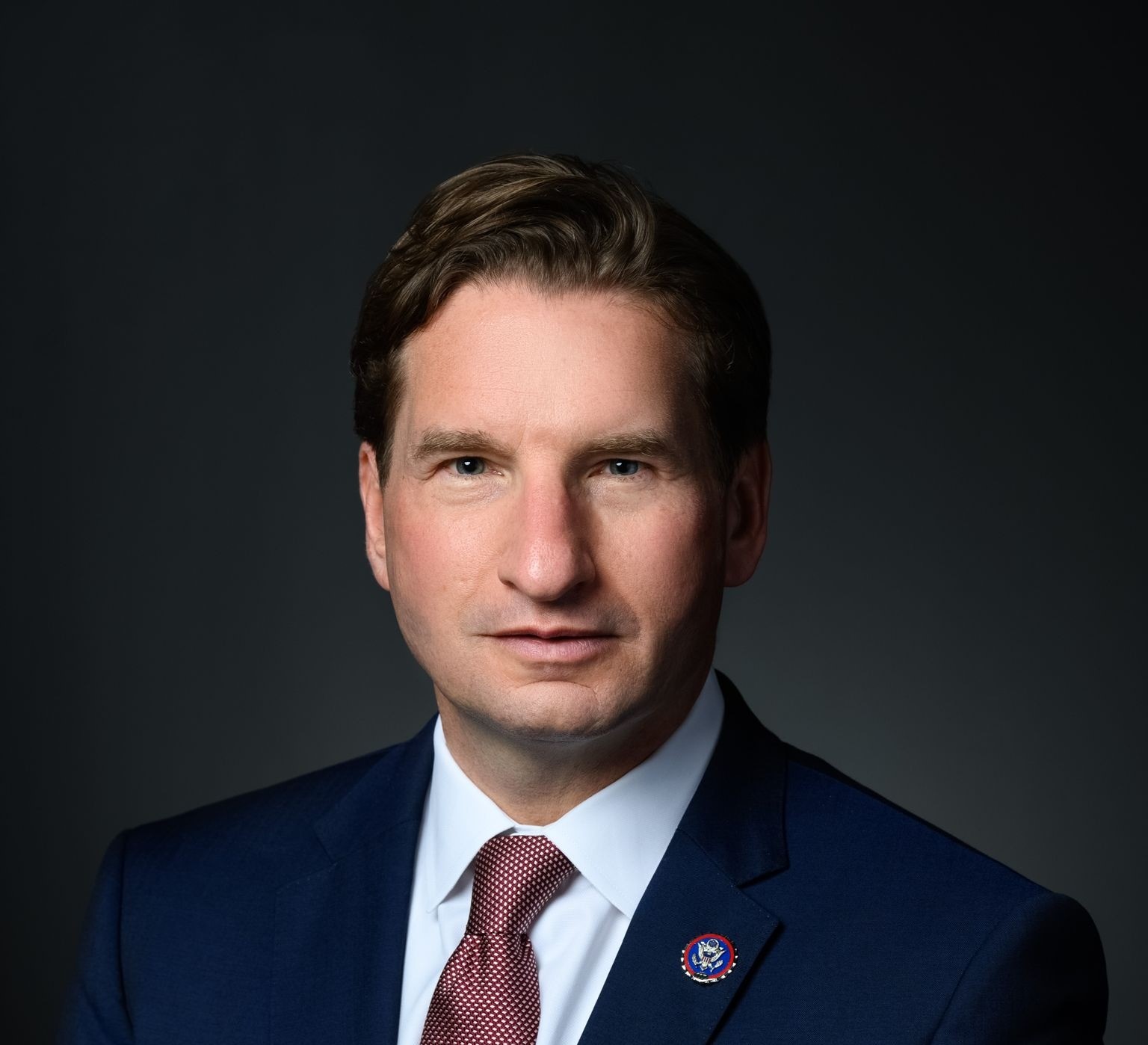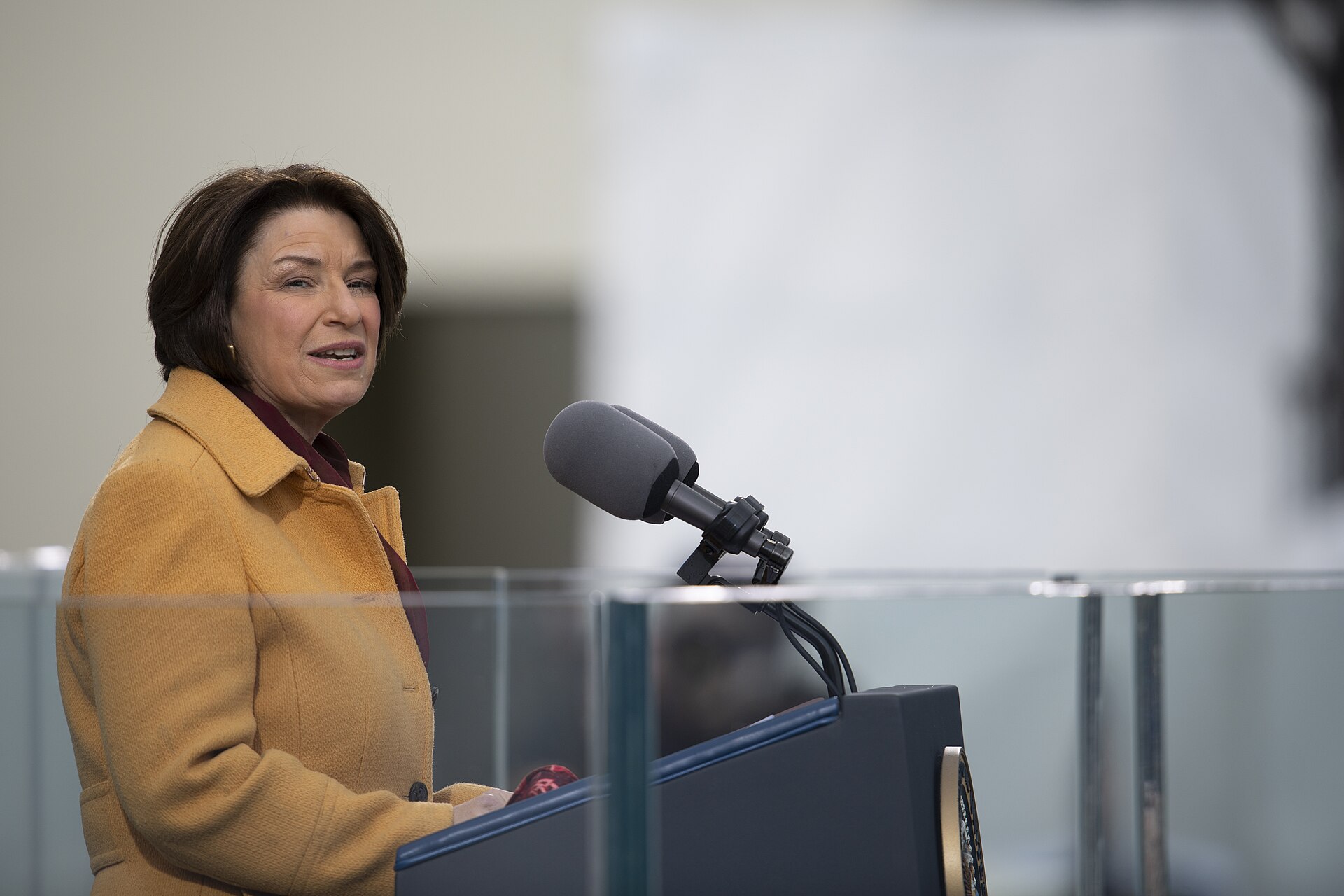Welcome back to The Flyover, your daily digest of what local media outlets and Twitter-ers are gabbing about.
Phillips Enters His Pro-Drug Era
It was a big scandal back in 1992 when, while on the campaign trail, future president Bill Clinton admitted to trying marijuana in college, quickly adding that he “didn’t inhale.” These days, candidates are actually encouraging other candidates to try the devil’s lettuce: At a town hall in New Hampshire earlier this month, U.S. Rep. Dean Phillips pondered whether President Joe Biden has ever whiffed a waft of weed.
“I’m sure he has never even smelled weed, let alone smoked it,” said the longshot presidential hopeful, who's heir to the vast Phillips Distilling Co. rot-gut empire. “I think he should, because he would find it awfully hypocritical that you can drink a half-gallon of Jack Daniels at night and report to work in his White House. But if you ate a gummy and it was discovered, you’d be fired and maybe even imprisoned.”
According to Politico, it’s all part of Phillips’s plan to smash his reputation as a “Minnesota moderate” and attract younger voters. With the help of Jeff Weaver, a longtime senior advisor to Sen. Bernie Sanders, the 54-year-old Phillips has been pointing out where Biden might not be as in sync with the kids these days, including topics like minimum wage, the Israel-Hamas War, and, judging from his weed comment, the "California sober" movement.
One Less Food Hall To Worry About
Back in 2017, as part of the broader mixed-use Dayton's Project, the Dayton’s Food Hall & Market was intended to make downtown Minneapolis a destination again. There would be tons of shops, a new business incubator, and, according to the press release, “experiential dining” inside the 45,000-square-foot food 'n' drink space curated by TV chef Andrew Zimmern. “Reading Market in Philly, Grand Central in L.A., West Side in Cleveland—all have 100 year histories in urban areas and have become synonymous with their cities,” Zimmern told MSP Mag's Stephanie March at the time.
Six years later, we've learned the food hall has stalled, and it's unlikely to ever happen as originally envisioned. “In terms of what the traffic would be like, and how many visitors… we’re just not certain that the downtown visitor population can support the food court as it is now,” new Minneapolis Downtown Council President Adam Duininck tells WCCO today, pointing out that the pandemic really did a number on their plans. While the food hall remains unrealized, the Dayton's Project's Winter Makers' Market is now in full swing.
New Metro Transit Code of Conduct: More Ticketing, No Shirtless People
The Metropolitan Council’s transportation committee has approved an updated Metro Transit rider code of conduct for 2024. The big five requirements, according to Peter Callaghan at MinnPost: riders must “pay fares, wear ‘tops, bottoms and shoes,’ only occupy one seat, have any non-alcoholic drinks covered and keep animals in carriers unless they are service animals.” While those things are already official no-nos, it's been made more clear that it's the job of transit police to handle violations when employees reminders don't work. New rules also explicitly make riding or being on a light rail loading station without payment a ticketable offense. If you do get busted, however, it’s not going to cost you as much. Fines for what is essentially loitering have been dropped from $180 to $35-$100. Ticketing is supposed to start this upcoming Monday, though the new code still has to be approved by the Met.
Vertical Endeavors Employees Vote to Unionize
Last August, Racket reported that workers at all five Vertical Endeavors locations in Minnesota planned to unionize. Well, today it’s official, as 81.8% voted in favor of joining the United Food and Commercial Workers (UFCW Local 663 and 1189). “We’re thrilled to welcome the first climbing gym workers to our Union,” says UFCW Local 1189 president Jim Gleb. This summer, the St. Paul-based company declined voluntary recognition, thus setting the table for the recent election overseen by the National Labor Relations Board. Now comes the even harder part: hammering out a first-ever contract.
BREAKING NEWS! Vertical Endeavors Workers Win Union Election and Join UFCW! https://t.co/9opu1KsJnK
— UFCW663 ✊📣 (@UFCW663) November 29, 2023







